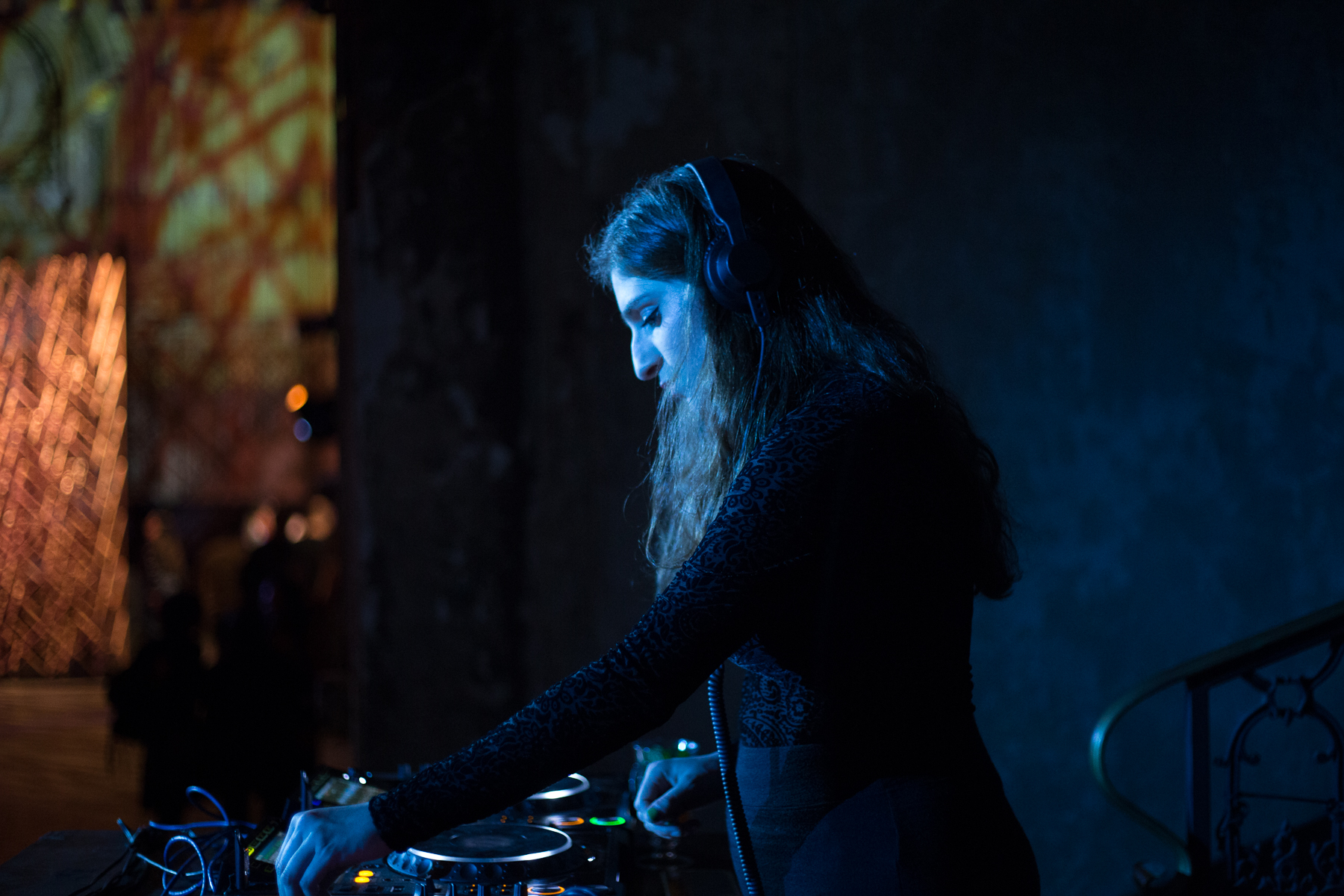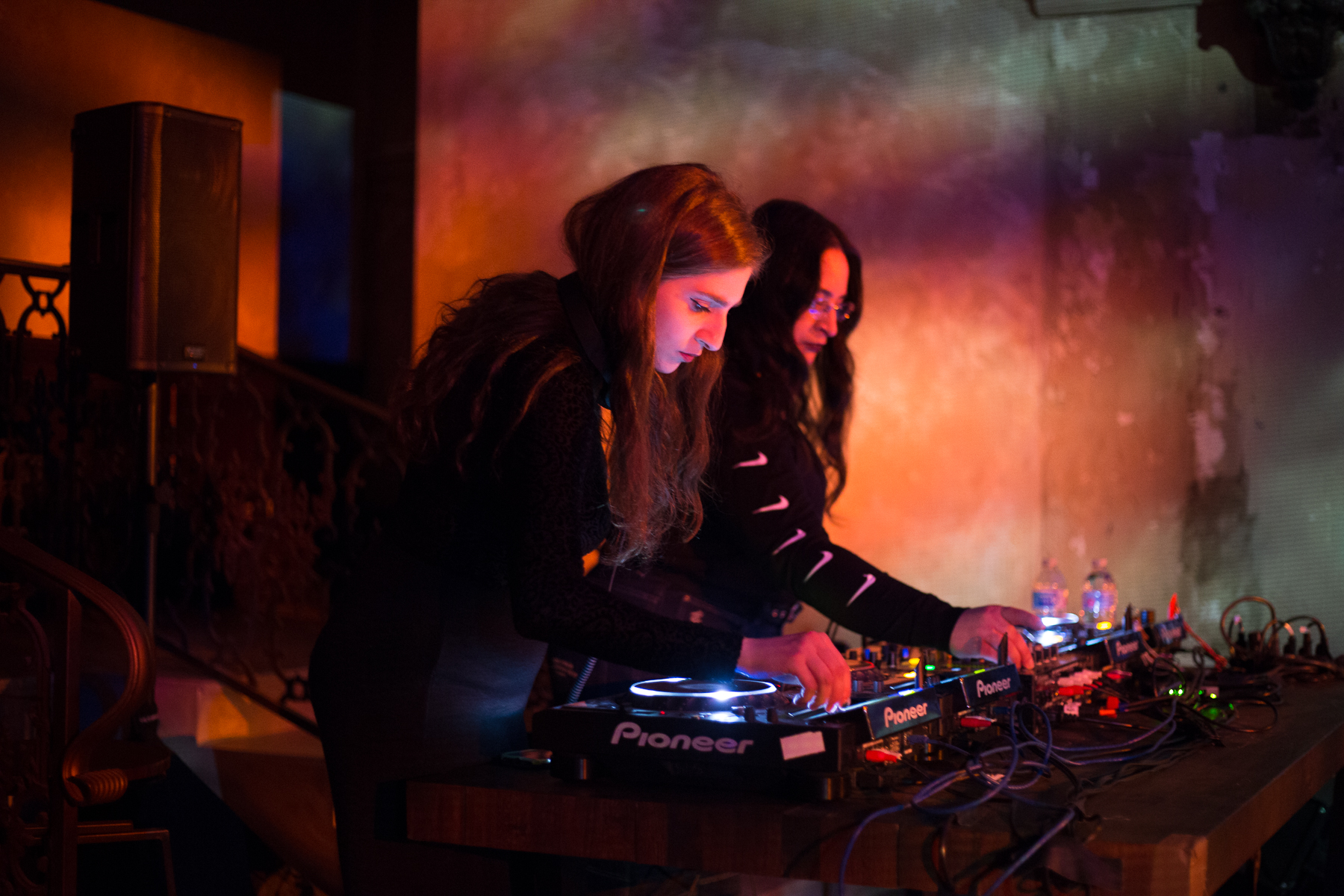Club Chai, the Oakland record label, event series, and curatorial project founded by electronic musicians Lara Sarkissian (who performs as FOOZOOL) and Esra Canoğullari (8ULENTINA), is about to celebrate it’s third anniversary. All the details for their mega birthday bash will be revealed in January, when they host a special pop-up event at San Francisco record store Vinyl Dreams. But in the meantime, the duo who are always phenomenally busy, have had plenty to keep themselves occupied. Last month Lara released her new EP, a dystopian electronic soundtrack titled DISRUPTION, and Club Chai hosted a release party for it, featuring sets by FOOZOOL, 8ULENTINA, Piano Rain, and The Creatrix.
The first rumblings of a collaboration between Esra and Lara happened in 2014, when they bonded over their shared interest in Middle Eastern club music (Lara is Armenian, Esra is Turkish), and how it holds a special place in the hearts of people of the diaspora. Esra taught Lara to DJ, and in 2015 they started DJing together at a local bar. But after 9 months, their relationship with the bar amicably dissolved and they began discussing something larger; a club night designed to intentionally meet the needs of Oakland’s queer, black and brown folks. “It came out of necessity. We had to stop working with that space and we were kind of like, alright, we have to do this,” explains Lara.
Fast forward three years and Club Chai is now one of the Bay Area’s most revered underground music collectives, both on and offline. In Oakland, their parties showcase a diverse range of local artists (and occasionally artists from elsewhere) whose sound, much like their own, focuses on expanding the definition of traditional electronic dance music. They also host workshops and act as mentors to many of the Bay Area’s rising stars. Online, you can get lost for days on Club Chai’s SoundCloud, where an array of club mixes, EPs and music from their one year anniversary compilation, Club Chai Vol. 1, come together to form one long mediation.
Do you remember the first conversation you had about Club Chai?
ESRA CANOĞULLARI: We had the idea to always do parties in DIY spaces, but I think we were pushed into it when we lost our space [at the bar]. But it was also mutual, we weren’t really that excited about working with that venue. There were a lot of limitations; bad sound, bad communication, no respect for what we were doing, so we were creating something that felt exciting, but not receiving any support. So we transitioned away from working with them and then maybe one or two months [later] we planned our first event. It happened really fast, but from that point on we were like, how can this thing be more interdisciplinary, or be beyond just what happens at the club night?
LARA SARKISSIAN: We were like, how can we introduce this sound and showcase local sounds and the international artists that we book with people outside of the Bay Area? That’s why we did the compilation (Club Chai Vol. 1), and that launched the record label side of things.
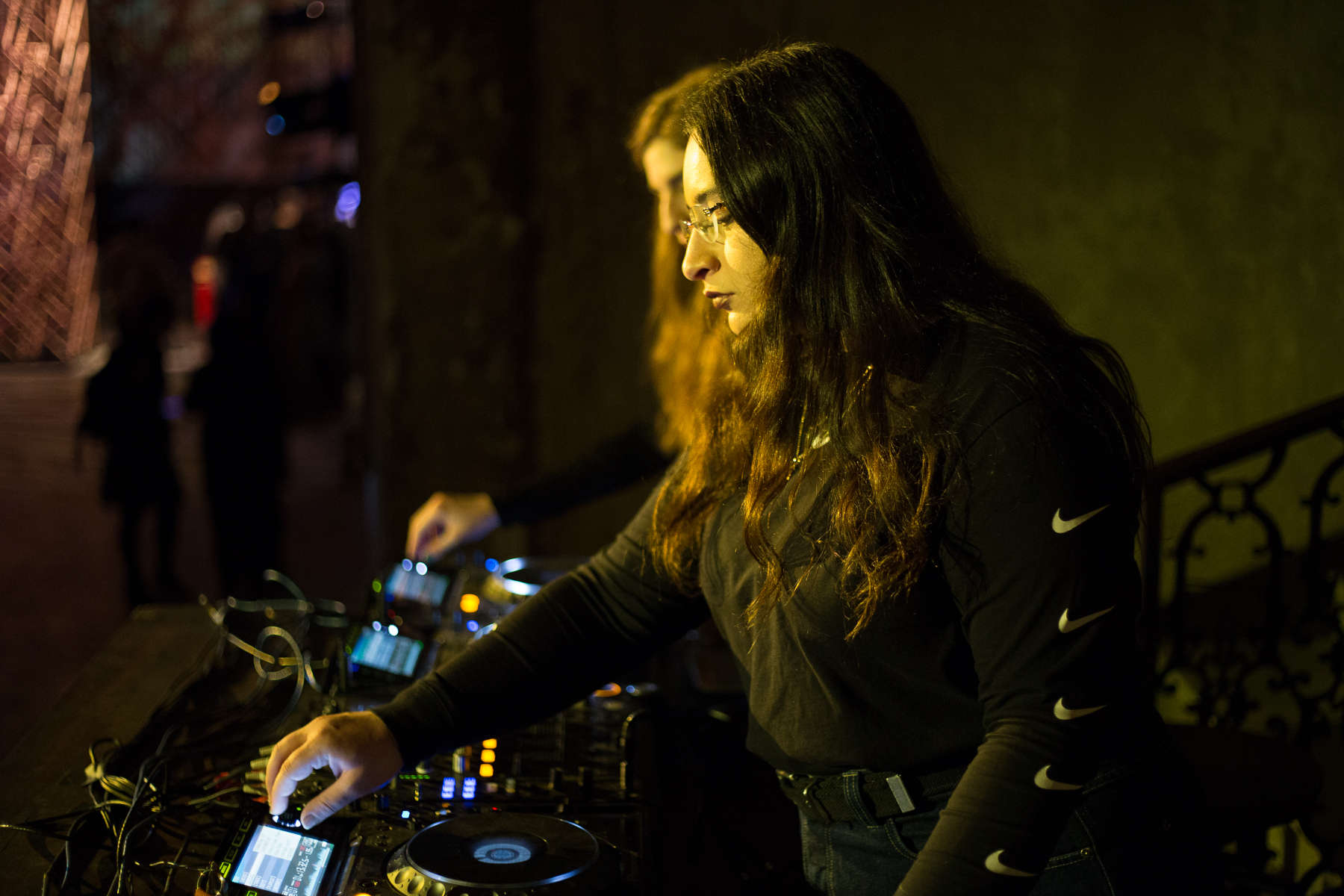
How would you describe the sound of Club Chai?
EC: It came from a place of us really dismissing genres as DJs. That was where our label vision came from, we were like, as DJs we really love the idea of being able to play non-western music, but let’s connect things in really conversational ways and have different percussive styles that have relationships to each other based on different histories of shared musical knowledge. I think the one common thread in a lot of what we do is that there is an experimental electronic element, but it’s not always meant for the dancefloor. And that’s what Club Chai as a label is too. It’s based in diasporic storytelling, but it’s not rooted in a specific genre.
LS: Sound as an extension of telling your story. Every single artist we have worked with has been an interdisciplinary artist as well, so the work is really interesting because they are being influenced by many different places, and they’re not just following one structure.
Is there a visual element as well?
EC: I think in the beginning it was more of a traditional club night, but in the past few years we’ve tried to be more experimental with what we book. For our two year anniversary we had our friend Davia Spain do a spoken work piece, and then she did a dance performance and a vocal performance. For my EP release we had Organ Tapes come from the UK and do a vocal performance and I made a bunch of clothing. I created this kind of sculptural installation that was an extension of my EP artwork. When we do those nights we curate it as a more experimental show, so that going into it people know that it’s going to be [that way]. There is still a dancefloor element to it, people can still dance, but I think giving a really specific context with how we present the event is really helpful for people.
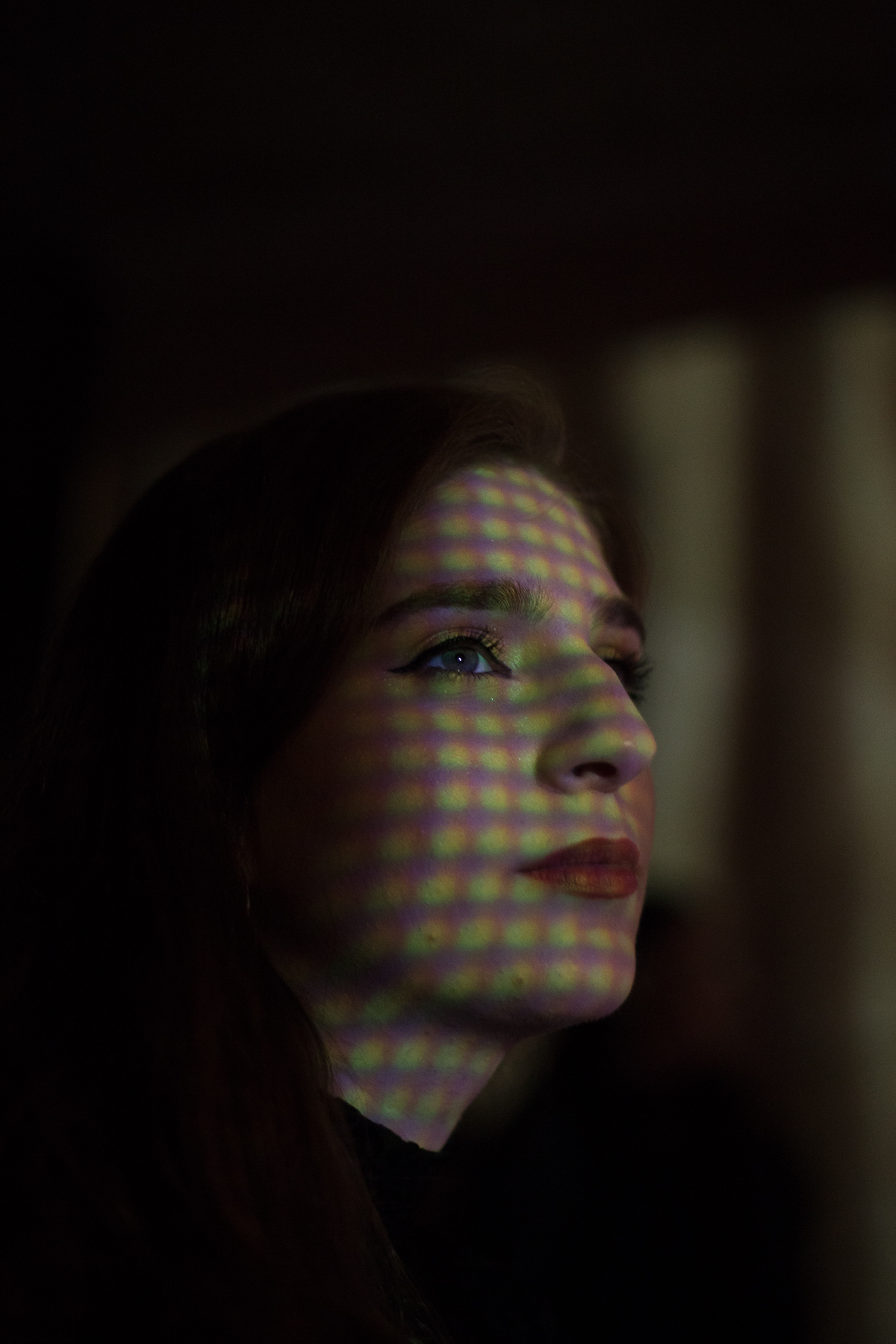
Have you had to learn business skills in order to operate Club Chai?
EC: Club Chai has turned into a small business and it has definitely taught us a lot beyond our practice. We’ve learned a lot about having conversations about money, which is really hard, but we’re way more interested in being the people having those conversations. We don’t have an agent, we tried that out and it didn’t really work for us. We were like, lets just get really good at doing this for ourselves. I think too, we’re really big on encouraging artists who are from the Bay Area to tour and go beyond their local scene. The local scene means everything to us, but we’ve learned so much from getting the opportunity to travel.
LS: And also this year we started working with brands a lot, [and] because they have their own systems and structures we had to learn how to communicate and work with them. I think that’s made our skills a lot stronger, too.
What processes did you go through to learn how to host events and DJ? Did people pass on knowledge to you?
EC: I don’t think we had a lot of mentorship until after Club Chai started and we found some people that were really supportive and lent us some gear. It would have been nice to have had a little more mentorship and support, we definitely play that role a lot for other people.
It’s great that you’re sharing your knowledge with others.
LS: Yeah, it’s actually really cool. We [hosted] a couple of workshops last year and then one person that came to ours started doing her own. It’s nice seeing people continuing that.
EC: I think the Bay Area definitely has a history of skill sharing and workshops, but not so much within music, more within anarchist communities, like zine making and political stuff. So it’s cool to see people not be gatekeepers and be like, I have all this gear, I can throw together a workshop and make it free or really accessible. I think a lot of people think that if you show them how to DJ Club Chai-style then they’re gonna copy you. But no! No one’s gonna mix the way I mix. They might steal my whole track list but they still can’t mix the way I mix, and they can’t tell my story for me. So I think that’s the one thing I had to always realize, the ego can’t be there, you will always be yourself, you can always share your skills and your track IDs or whatever, because you’ll always be the one doing it the way you do it.
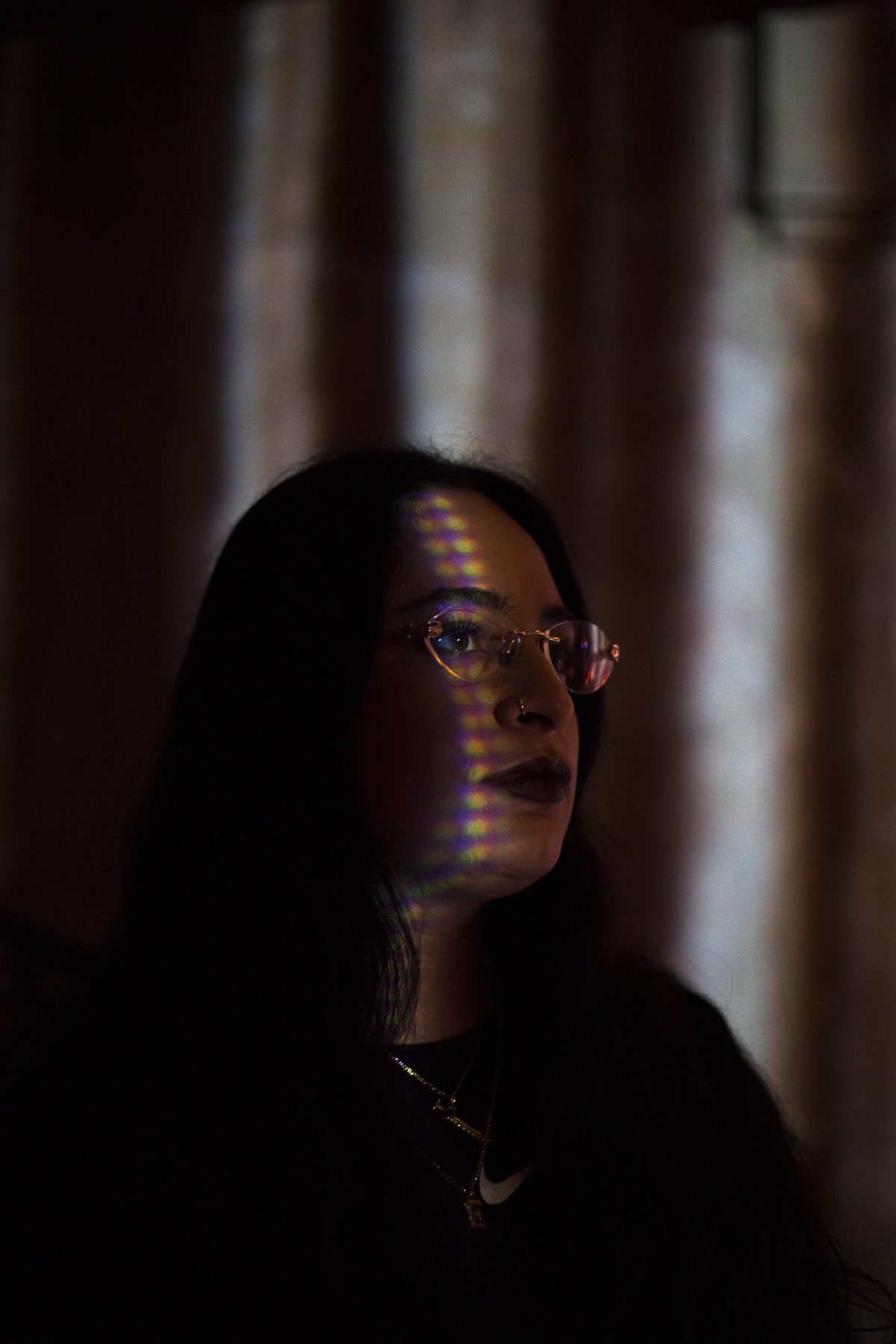
With the Bay Area undergoing very rapid gentrification, has there been any conflict between larger promoters and smaller community driven promoters like yourselves?
LS: There’s definitely a big gap.
EC: The bigger clubs in San Francisco know who we are and they will book us occasionally, but it’s contextualized very much as it being a risk for them.
LS: They’re like, ‘this is really risky for us’.
EC: Even though when they book us the venue is full. I think it’s because a lot of those venues are dealing with the issue of having to pay ridiculous rent, and so they have to book these EDM superstars to keep a roof over their venue. So I understand it. It doesn’t really create conflict, it just creates this huge gap of understanding when they do contact us once a year to do an event like pride. It becomes this really draining conversation. The person has to do a lot of work just to learn how to communicate with us. And it’s weird for us, because we can communicate with brands and all these other people, but these big talent buyers have a very different way of thinking. But it has been exciting in the past year to see bigger venues reaching out to us and saying, ‘hey, we want to work with you’. I think we deserve that acknowledgment and we deserve that space. I just never know how genuine the interest is.
LS: We would love to be included in these bigger spaces. A lot of the sounds that they work with still come from the underground, so I think it’s important to give access to people who come from that context.
EC: Lara and I talk about it a lot. The underground and the Top 40 artists, on a mental level there’s a gap, but when it comes to how much non-western music was popularized in Top 40 music in the past year, hearing a lot of Ozuna, Bad Bunny, there’s so much dancehall in the Top 40. I heard a lot of Middle Eastern percussion. All of these things are coming into the Top 40. If more underground artists were booked as support for those acts, then maybe the gap wouldn’t be that big, but that’s where I think the gap is. The underground is sacred, so I hope there’s things that don’t merge, but I’d like to see more underground artists getting the mainstream cheque.
